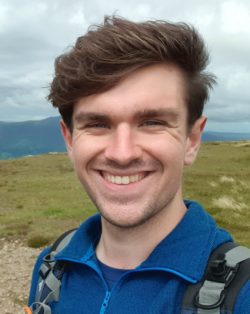Choosing a course and university
Stephen

Year 4 Biology Student
I knew that Biology was what I wanted to study at university quite early on in the process, but when I came to choose a course I realised just how extensive the types of courses available were – from zoology and genetics to biochemistry and microbiology – the choices were endless! If you have a specific interest in your preferred subject then your choice is a lot easier. If, however, you are like me and don’t quite know what is best then do some research. Ask the difference between courses at open days or send an email to the admissions team asking for some advice. I chose Biology to keep my options open, rather than specialising so early on. Many courses have a common first year anyway, meaning it is possible to switch courses within your school after the first year if you discover a true passion in the first couple of terms.
Though applying through UCAS can feel like a big and scary process, I found it to be very easy to use and there is lots of support on offer. The UCAS website has a lot of resources to help you navigate the process, including key steps and key dates. I would advise writing down the main steps and dates so you can keep track of everything. Once you have made your choices on universities and courses, sit on it for a week, if there is time, and make sure you’re happy with your decisions. Writing your personal statement is perhaps the trickiest part of applying to university. Start writing it early on, do your research on your course, mention any skills or experience you have and most of all convey your enthusiasm for why you want to study the subject at university – what about your course makes you the most excited? Finally, get a friend or parent to read over it to check for any spelling errors, just in case!
Sian

Year 2 Art and Design Student
When it comes to picking your course and university it’s really important to consider which factors are important to you. For me I knew that I wanted to do a creative course with practical elements, I wanted to live in a city that I liked, with the university close to the centre. Having the chance to do a study abroad year was also really important to me. A tip for narrowing down your options would be to look at the optional modules for each course and how they are assessed – picking enjoyable optional modules will make that course so much better!
I found applying through UCAS relatively simple, and I also utilised the help that my teachers provided. Whilst writing your personal statement try not to worry too much about it - explain why you’re interested in your chosen subject and suggest qualities that you have that would help with that course (make sure to use lots of examples to support these qualities too). I had to do a few portfolio interviews alongside my UCAS application, but they weren’t too serious and I slightly tailored my portfolio to suit what each University was looking for which helped!
